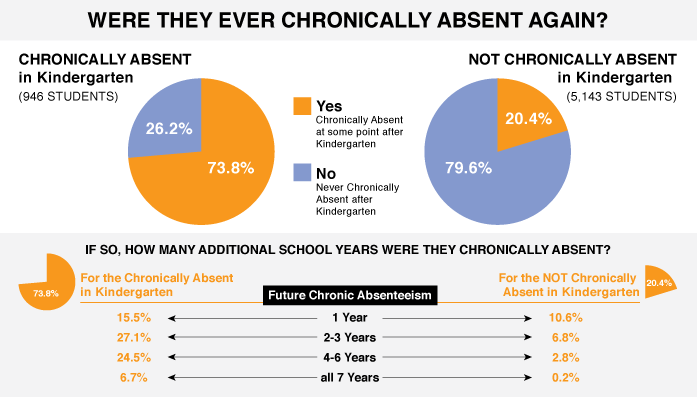Chronic Absenteeism Often Becomes a Persistent Habit

Students who attend kindergarten regularly tend to develop good attendance habits. Conversely, those who begin their school careers attending sporadically often continue to be chronically absent in later school years.
Of the students who were chronically absent in kindergarten, nearly three-fourths of them (73.8%) were chronically absent again in the future. Students with high attendance in kindergarten tend to continue attending faithfully. Although, roughly 20% slip into chronic absenteeism in a subsequent grade.
Looking at data for these kindergarteners over the next seven years, we see that for many absenteeism becomes a habit. Of the nearly 75% of chronically absent kindergarteners who went on to be chronically absent again in the future, about 7% of them were chronically absent EVERY year and another 25% were chronically absent nearly every year (between 4-6 school years). Changing this habit becomes increasingly difficult as students age, move on to secondary schools, and start to make decisions, like skipping school, for themselves.
Working closely with families whose children are chronically absent in the earliest grades would help to establish the importance of regular attendance throughout a child's schooling, and into college and the workplace.









